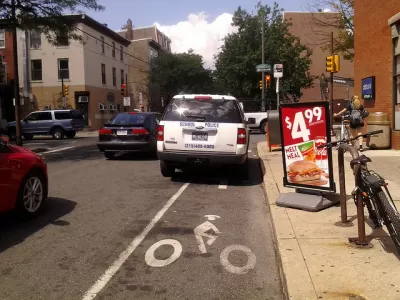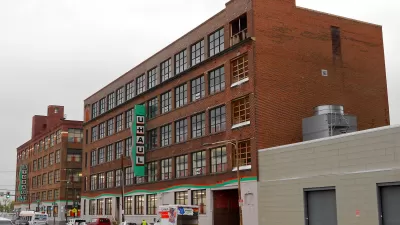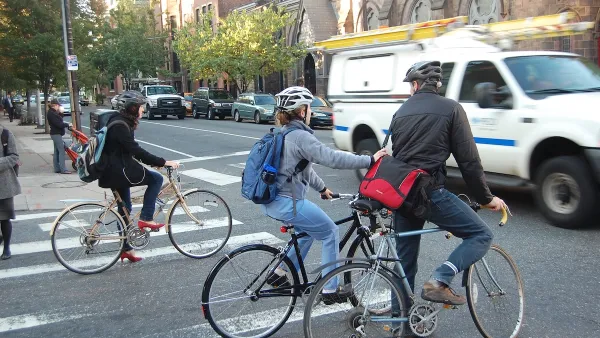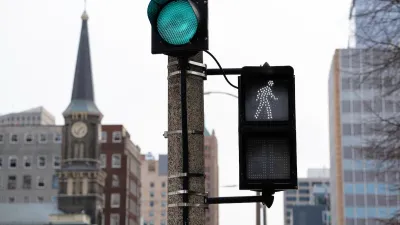The Philadelphia Inquirer Editorial Board pushes against a proposed bill that increases City Council oversight of new bike lanes. Traffic calming, the Inquirer argues, requires a citywide approach.

Despite a pledge to install plentiful new bike lanes, Philadelphia Mayor Jim Kenney has encountered resistance. Now, according to The Philadelphia Inquirer, City Council member Jannie Blackwell wants to take the pushback even further.
As the editorial puts it, "Blackwell introduced a bill last month that says that if the city administration wants to modify an existing bike lane, it will first have to kneel before the throne of a tradition called Council prerogative. The bill is so vaguely written that it could be interpreted as saying Mayor Kenney must beg Council's permission before the city could repaint stripes on pavement."
Pointing to Council prerogative's status as a "tradition" rather than established law, the editorial states, "There are no real rules guiding prerogative and some Council members have used that power to obstruct city projects and, in a few instances, to use it for leverage."
To achieve its Vision Zero goals, the piece says, Philadelphia needs citywide solutions like a network of protected bike lanes. "Because streets crisscross the city, they belong to all of us – drivers, cyclists, and pedestrians. That means the parochial interests of district Council members should not trump citywide concerns."
FULL STORY: Why City Council shouldn't have the power to interfere with bike lanes and traffic safety

Maui's Vacation Rental Debate Turns Ugly
Verbal attacks, misinformation campaigns and fistfights plague a high-stakes debate to convert thousands of vacation rentals into long-term housing.

Planetizen Federal Action Tracker
A weekly monitor of how Trump’s orders and actions are impacting planners and planning in America.

San Francisco Suspends Traffic Calming Amidst Record Deaths
Citing “a challenging fiscal landscape,” the city will cease the program on the heels of 42 traffic deaths, including 24 pedestrians.

Defunct Pittsburgh Power Plant to Become Residential Tower
A decommissioned steam heat plant will be redeveloped into almost 100 affordable housing units.

Trump Prompts Restructuring of Transportation Research Board in “Unprecedented Overreach”
The TRB has eliminated more than half of its committees including those focused on climate, equity, and cities.

Amtrak Rolls Out New Orleans to Alabama “Mardi Gras” Train
The new service will operate morning and evening departures between Mobile and New Orleans.
Urban Design for Planners 1: Software Tools
This six-course series explores essential urban design concepts using open source software and equips planners with the tools they need to participate fully in the urban design process.
Planning for Universal Design
Learn the tools for implementing Universal Design in planning regulations.
Heyer Gruel & Associates PA
JM Goldson LLC
Custer County Colorado
City of Camden Redevelopment Agency
City of Astoria
Transportation Research & Education Center (TREC) at Portland State University
Jefferson Parish Government
Camden Redevelopment Agency
City of Claremont





























